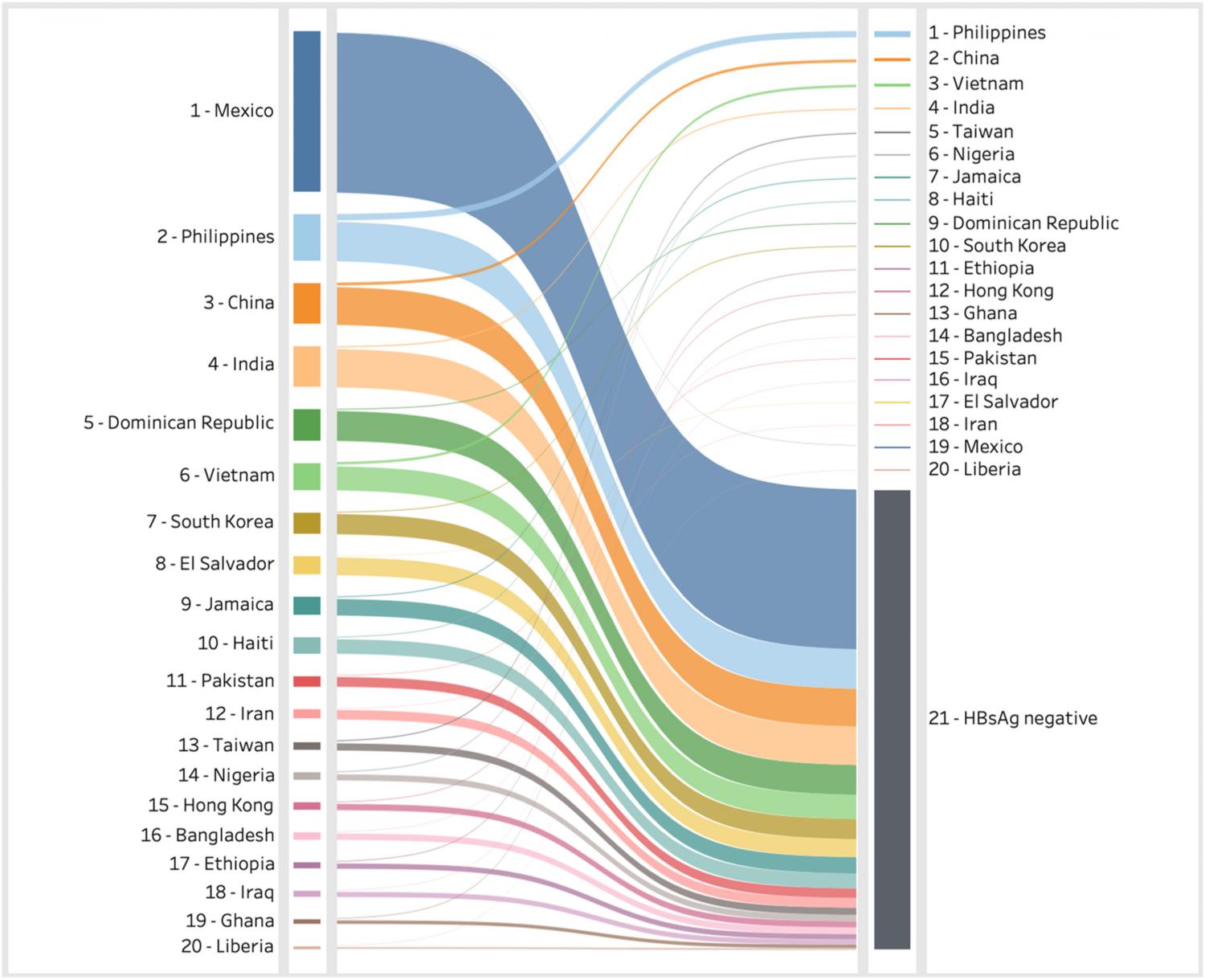
Background: The 2016 World Health Assembly endorsed the elimination of hepatitis B virus (HBV) infections by 2030. However, the HBV prevalence in Western countries, where the historical prevalence is low and highly impacted by immigration trends, remains uncertain making planning difficult. We aimed to develop a more accurate estimate of HBV prevalence and identify key immigrant populations that need to be screened, vaccinated, and treated to achieve the elimination targets. Methods: US immigration data from 1900 forward and country-specific modeled prevalence by age and sex were used to estimate immigrated HBV infections entering the US, new infections in the US, mortality (all-cause and liver-related), and disease burden through 2030. Findings: Using a dynamic Markov model, we estimated 1.8 million (95% uncertainty interval: 1.3–2.6 million) HBV infections in 2020 in all ages, higher than the NHANES national serosurvey. Infections between ages 30–74 accounted for 82% of all cases. Furthermore, HBV infections were concentrated among immigrants. New decompensated cirrhosis, hepatocellular carcinoma, and liver related deaths are expected to increase by 20%, 31% and 25% respectively from 2019 to 2030 at current diagnosis and treatment rate. Interpretation: National serosurveys can underestimate total infections due to under-sampling in immigrant populations. To meet the WHO elimination targets, culturally appropriate screening and linkage to care programs in the immigrant populations are needed in the US. In their absence, there will be significant increases in the burden of HBV and the US will fail to meet the elimination targets by 2030. Funding: This analysis was funded by a research grant from Gilead Sciences (IN-US-988-5786) and made possible by grants from John C Martin Foundation (2019-G024), ZeShan Foundation (2021-0101-1-CDA-HEP-10), and EndHep2030 who supported country analyses.
